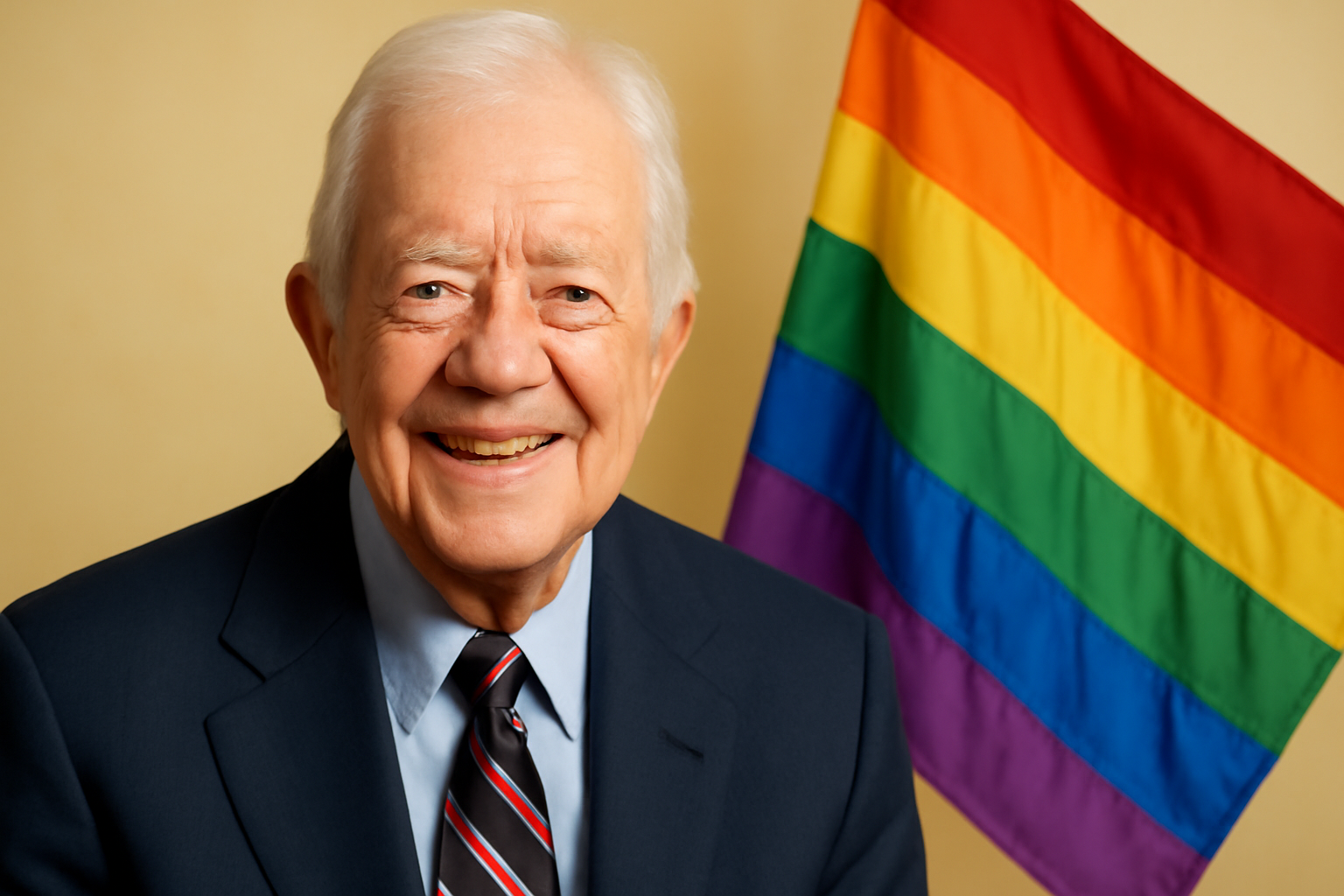
Jimmy Carter is widely respected for his numerous significant achievements, ranging from his support for African-American civil rights, winning the Nobel Peace Prize, promoting energy security, commitment to conservation, to his remarkable work after his presidency. However, when it comes to LGBTQ+ rights, his legacy during his presidency from 1977 to 1981 is more complicated, reflecting the societal attitudes of the time.
The 1972 Democratic National Convention
At the 1972 Democratic National Convention, a platform proposal to prohibit discrimination based on sexual orientation was rejected by a 54 to 34 vote. This convention marked a historic moment as Jim Foster and Madeline Davis became the first openly gay delegates to address a national political convention’s plenary session. Their speeches on July 12 were scheduled at an unorthodox time of 5 a.m., during a segment dubbed by Walter Cronkite as “the Gay Lib plank.”
Carter's 1976 Presidential Campaign
As a presidential candidate in 1976, Carter took a bold step by endorsing the Equality Act. This proposed act aimed to amend the 1964 Civil Rights Act to include protections against discrimination based on sexual orientation. Carter appointed Midge Costanza, who was a closeted lesbian, as the head of his Office of Public Liaison. Costanza, who had previously served as Carter’s New York State campaign coordinator, was the only woman in a senior position on the White House staff during Carter’s presidency.
Historic White House Meeting
On March 26, 1977, Costanza hosted a groundbreaking meeting with gay representatives at the White House. This group of 12 included LGBTQ+ pioneers such as Frank Kameny, Reverend Troy Perry, and Jenn O’Leary and Bruce Voeller, who were co-chairs of the National Gay Task Force. The event was significant enough to draw coverage from major news organizations, although it also sparked backlash. The day after the meeting, Anita Bryant, who led a Christian campaign against LGBTQ+ rights, criticized the event and vowed to lead a crusade against what she described as an “abnormal lifestyle.”
Costanza's Demotion
By 1978, Costanza’s influence in the White House had waned. She was demoted, her office moved from its proximity to the Oval Office to the basement, and her staff reduced from more than a dozen to just one. Costanza resigned in August 1978, a move that highlighted the challenges faced by LGBTQ+ advocates within the political system at the time.
Progress and Setbacks
The late 1970s were a tumultuous time for LGBTQ+ rights. In November 1977, Harvey Milk became a San Francisco Supervisor, making him one of the first openly gay Americans elected to public office. Tragically, Milk was assassinated in 1978. During this period, public opinion was still largely opposed to LGBTQ+ rights; a 1978 poll showed that 70% of Americans were against protections against discrimination based on sexual orientation.
1980 Democratic National Convention
By the 1980 Democratic National Convention, the number of openly gay and lesbian delegates had increased to 77, compared to just a handful in 1976. Melvin Boozer, an African-American scholar and head of the DC Gay Activists Alliance, was nominated for vice president. Although Boozer declined the nomination, his call for the adoption of a gay rights plank was a significant moment in the history of LGBTQ+ advocacy.
Legacy and Reflection
Reflecting on Carter’s legacy, it is important to consider the broader context of the era. Carter did not embrace homophobia but rather navigated the complex social and political landscape of his time. Despite failing to fulfill his campaign promise to support the Equality Act, he remains one of the nation’s most decent and forward-thinking leaders. His contributions, viewed within the constraints of the period, show a leader attempting to balance progress with the prevailing sentiments of society.
Ultimately, based on the totality of his work, Jimmy Carter made significant contributions to the betterment of society. His efforts and memory continue to be a source of inspiration and a reminder of the ongoing struggle for equality and justice.
Related Posts
Exciting New Images Released for '100 Nights of Hero': A Captivating Historical Fantasy
Unpacking '100 Nights Of Hero': A First Look If you're a fan who loves getting lost in historical fantasy, get ready because new images from *100 Nights Of Hero* have just dropped. This much-anticipated film stars Nicholas Galitzine, Emma Corrine, and Charli XCX, and brings Isabel Greenberg's beloved graphic novel storybook magic onto screens. Under Julia Jackman‘s masterful direction, *100 Ni [...]
Mary Trump Critiques Her Uncle's Use of Religion for Political Gain
Mary Trump, a clinical psychologist and openly lesbian, has been quite vocal about her criticisms regarding her uncle, former President Donald Trump. Recently, she took issue with how he uses religion as a means, in her view, simply as a tool, especially evident when discussing his decision on a military strike against Iran. In her blog, she expressed concerns that invoking God was less about fait [...]
The Enduring Journey from Darkness to Light: A Story of Resilience
One key part about taking charge in life? Defining yourself instead being shaped by someone else. It's all about living true and breaking away from those social norms dictating who "deserves" rights based on identity or fitting in with mainstream ideas. Often, society creates these isolating "closets" that keep people who dare defy these norms hidden and unsafe. History shows how religion's been [...]